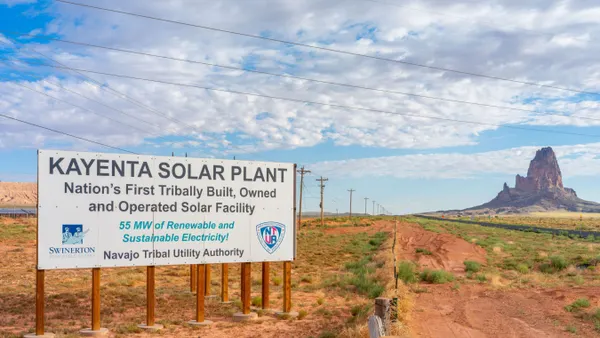Dive Brief:
- Pacific Gas & Electric and BMW have completed an 18-month demand response pilot that included 100 owners of the BMW i3 in the California Bay Area, concluding that the aggregated electric vehicles could function as a flexible grid resource.
- Throughout the pilot, PG&E dispatched 209 demand response events totaling 19,500 kilowatt-hours, utilizing the EV's flexible charging and a solar-plus-storage project that BMW operated.
- The program was designed to run without much direction from customers, and returned a 98% satisfaction rate, while 93% said they would be likely to participate again.
Dive Insight:
Based on the success of the PG&E-BMW program, the utility said it has plans for a second phase to "explore the ability to optimize charging events wherever the vehicle is charging — at home or on the go."
Ultimately, PG&E said in a blog post detailing the results, the goal is to expand and test new smart charging functionality to generate greater grid benefits.
“This is the first pilot that PG&E has run that specifically leverages a combination of managed charging and used EV batteries," said program manager David Almeida. "Not only did we test technical capabilities through the pilot, we also focused on customer research and behavior to better understand the participants’ perceptions and experience in the program."
In the pilot, PG&E would send demand response signals to BMW requesting a load reduction on the grid of up to 100 kilowatts. BMW would select vehicles for delayed charging of up to one hour delay per day. The company also supplemented the lowered demand with a battery system made from “second life” EV batteries powered by solar energy.
The full results of the pilot can be found here. PG&E said it concluded that owners of electric vehicles "have
a strong interest in supporting renewable energy through managed charging programs." The program's hefty incentives may have helped as well: Customers who allowed the utility control over their home vehicle charging could receive up to $1,540 in incentives.
The incentive included $1,000 for signing up and up to $540 for ongoing participation, but PG&E's report said "it is interesting to note that participants indicated that helping to manage load on the electrical grid and promoting the reuse of BMW Group 2nd life batteries as more important than the ongoing incentive."














